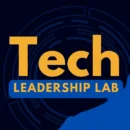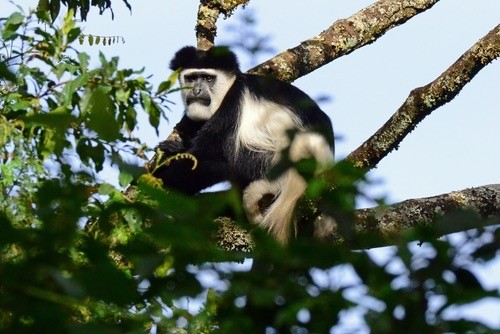It was my first time to participate in a global AI summit. I left hopeful and better informed.
Cristina Imre boldly convened a Tech Leadership Lab summit with 32 experts from around the globe to delve into the collaborative potential of AI to address the pressing needs of humanity and the climate crisis.
This diverse panel of experts, hailing from countries such as India, Kenya, Morocco, the Netherlands, the UK, and the USA, represented a wide array of disciplines.
I was astounded by the breadth of disciplines represented, such as transition engineering, clean energy, biomimicry (emulating nature’s patterns and strategies), bolstering healthcare system resilience, and repurposing waste into profitable assets.
Frequently my head swam from the wealth of information presented, the solutions offered, and the complexity of solving for the needs of wide-ranging stakeholders – small entrepreneurs, multinational corporations, governments, multilateral agencies, agricultural and urban societies.
The problems at hand are immense and intricate: poverty, climate-induced migration, and urban flooding, to name a few. Identifying cause and effect and devising solutions involves considering myriad factors.
As I listened, it became evident that the complex problems discussed stemmed from human disconnection – disconnection from each other, from nature, or from factual data.
We each have personal stories illustrating the effects of the climate crisis. For instance, the rapid deforestation surrounding my family’s farm drastically altered weather patterns and our ability to farm. Within a few years temperatures rose, rainfall decreased, and habitats for indigenous animals such as the Colobus monkey were decimated in the Mau Forest. Do you recall when windscreens were covered with insects attracted by the headlights of the car speeding towards them? Those days are gone. Similarly, in southern New York, where I currently live, what were once considered 100-year floods now seem to occur annually.
If I disregard your well-being, it becomes easy to mindlessly pollute the river that flows downstream to you. If I believe my food is from the grocery shop, I can disconnect from the sources of my food – soil, and water. Moreover, when I disengage from civic responsibilities, I fail to hold my government accountable for ignoring solutions rooted in factual data.
Recognizing the chain of events within a sustainable ecosystem is challenging, as ecosystems are complex, with each part influencing many others in often incomprehensible ways.
Consider, for example, the issue of light pollution at night, which disrupts circadian rhythms and affects nocturnal insects, birds, and mammals, that rely on darkness for essential behaviours such as foraging, mating, and navigation. The consequences – ranging from disrupted predator-prey interactions and diminished reproductive success to altered migration patterns – cascade through ecosystems, affecting processes such as flowering, seed dispersal, and nutrient uptake. Ta dah! Our food has less nutrients and our health suffers.
Similarly, the global proliferation of microplastics accumulates in soil, freshwater, and marine environments, and is ingested by a wide range of organisms, including plankton, fish, and birds. As these plastics move up the food chain, they concentrate toxins and pollutants posing health risks for wildlife and humans. This, in turn, degrades biodiversity, crop yields, and ecosystem services vital for human well-being, including water purification and climate resilience.
And we have not yet factored in the decimation of agricultural land forcing people to migrate across country borders to find food and shelter.
Corruption and greed exacerbate these issues. And when the perpetrators are caught it captures our imagination and it is disheartening. But wide-scale data show that contrary to what we might believe, most people genuinely aspire to act ethically.
Instead of coming together to tackle these challenges, we have retreated into tribalism, blaming those with differing views and defending narrow solutions. We become self-righteous defending our tiny territory of solutions and dismiss others.
Even if correct how does belittling another encourage collaboration and foster new ideas? It does the complete opposite.
What if we stop blaming and belittling Others who approach the issues differently?
What if we stop acting like deer in the headlights overwhelmed by data, complexity, and fear and instead embrace collaboration?
What would the transformative power of connection achieve?
As I listened to the experts, it became clear that implementing solutions necessitates collaboration across borders, disciplines, and communities. Successful collaboration hinges on respect, curiosity, innovation, shared purpose, and a commitment to action.
The root of our problems seems to lie in disconnection. If we are walled off from each other emotionally, mentally, or physically, if we disconnect, we cannot collaborate. We cannot learn from each other. We cannot influence each other. In short, we cannot work together. The problems are so large and complex that no one group has all the answers and resources, so we need to work together.
Regardless of political affiliations, educational backgrounds, or nationalities, our fundamental desires – clean water, breathable air, and security from environmental threats (famine, floods, drought, pestilence, etc.) – are universal. We are all vulnerable to the climate crisis and social disconnection.
Remarkably, resources required to address these challenges – knowledge, technology, finances – are currently available and expanding rapidly, particularly with the exponential growth of AI solutions. But their potential remains untapped without collaboration and implementation.
Fear-mongering perpetuates disconnection, impeding creativity, innovation, and collaboration. While we remain fearful and anxious our brains literally become less thoughtful, less able to solve difficult problems. We fall into vicious loops of exaggerating and imagining the worst, and we become blind to opportunities to collaborate and solve.
When we feel connected, we become hopeful, grateful, and experience awe. Our brains become better able to problem solve, operate with clear-headed focus, and take aligned action (rather than being scattered and frenzied). Scientific findings corroborate what poets, philosophers, and theologians have long asserted: humans are hardwired to connect. Our collective prosperity thrives on connection.
In essence, to thrive and solve our urgent problems we need to connect.
Thoughts? Do you think collaboration is key?
Written by Angela Nesbitt originally on LinkedIn

